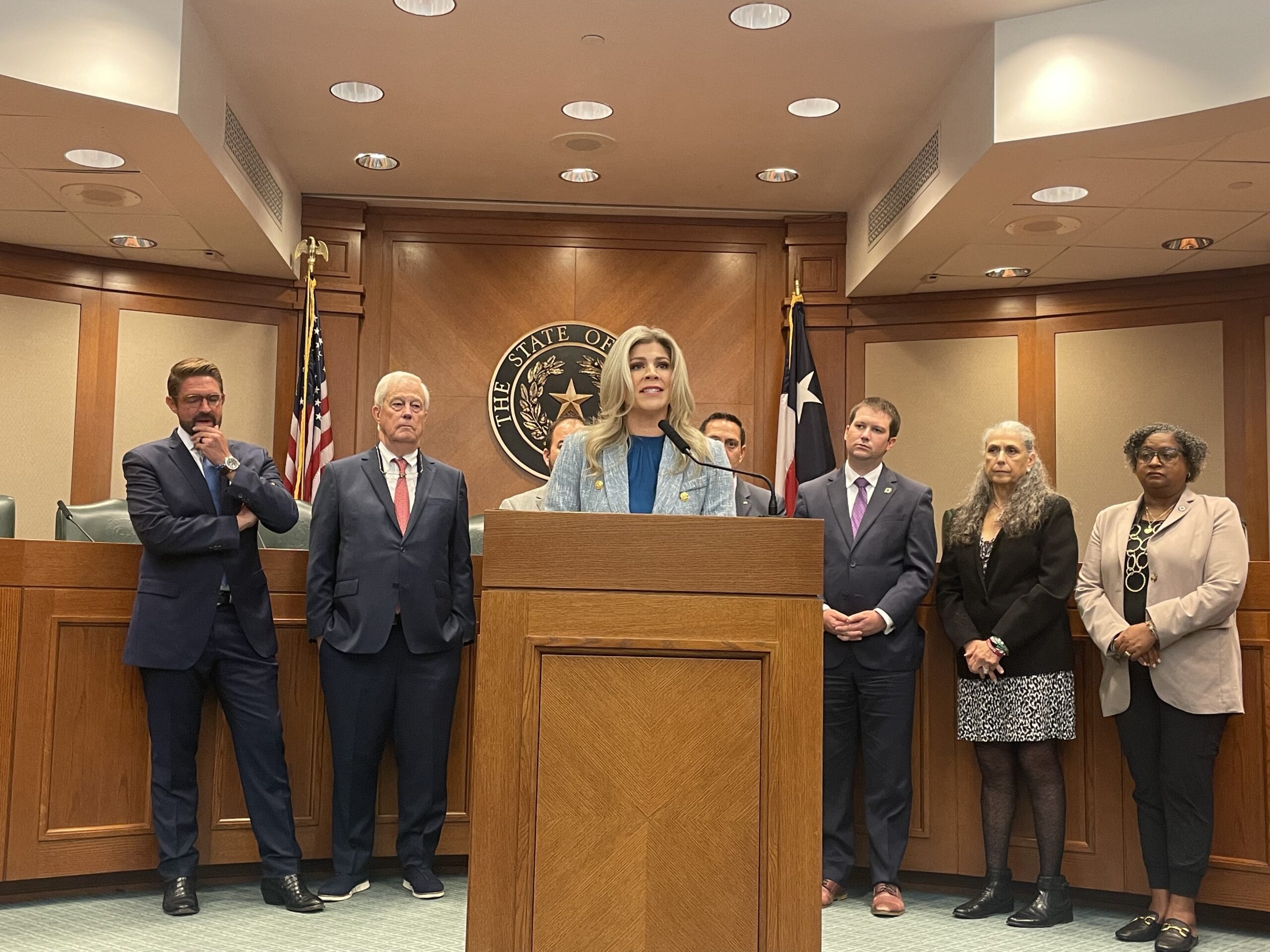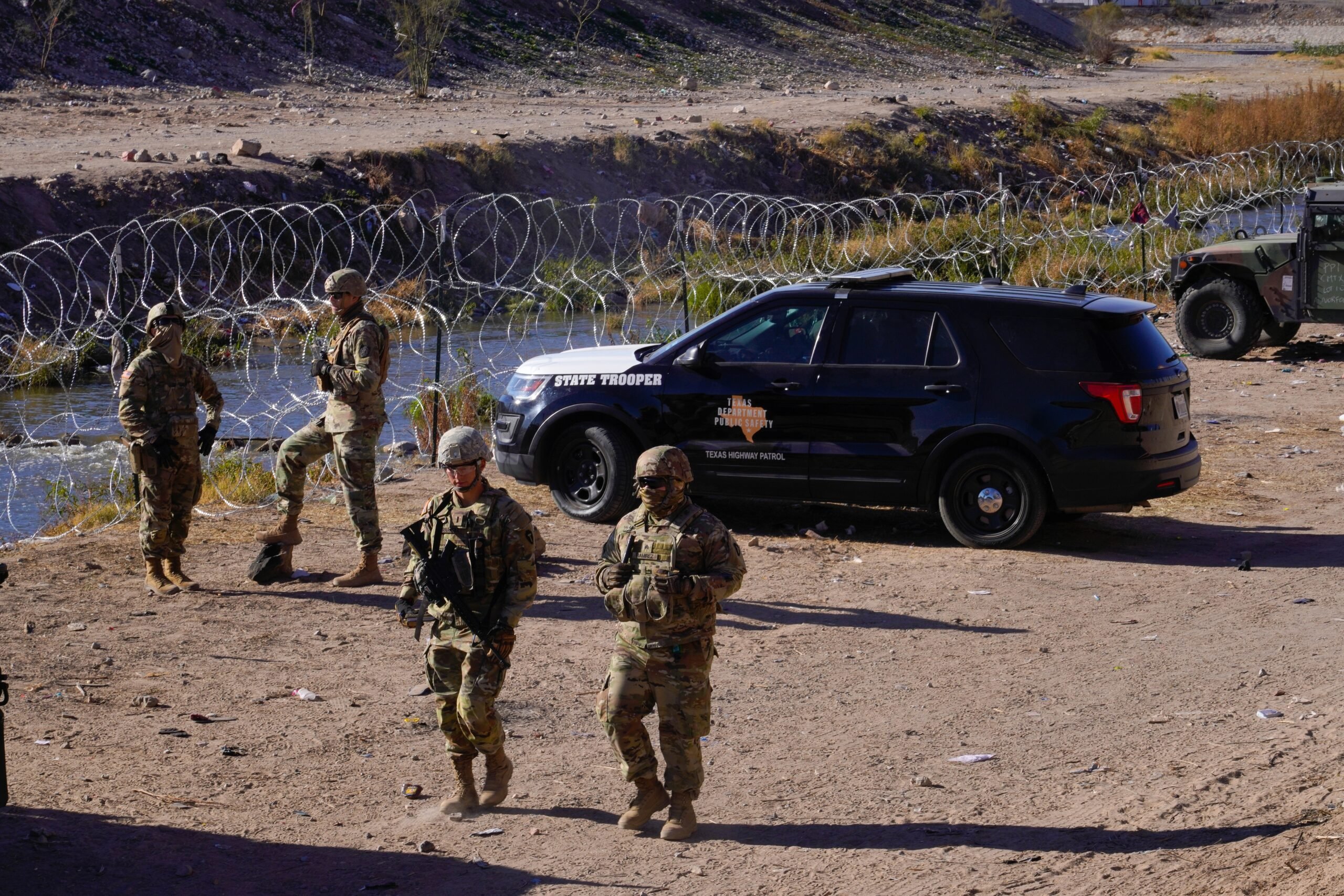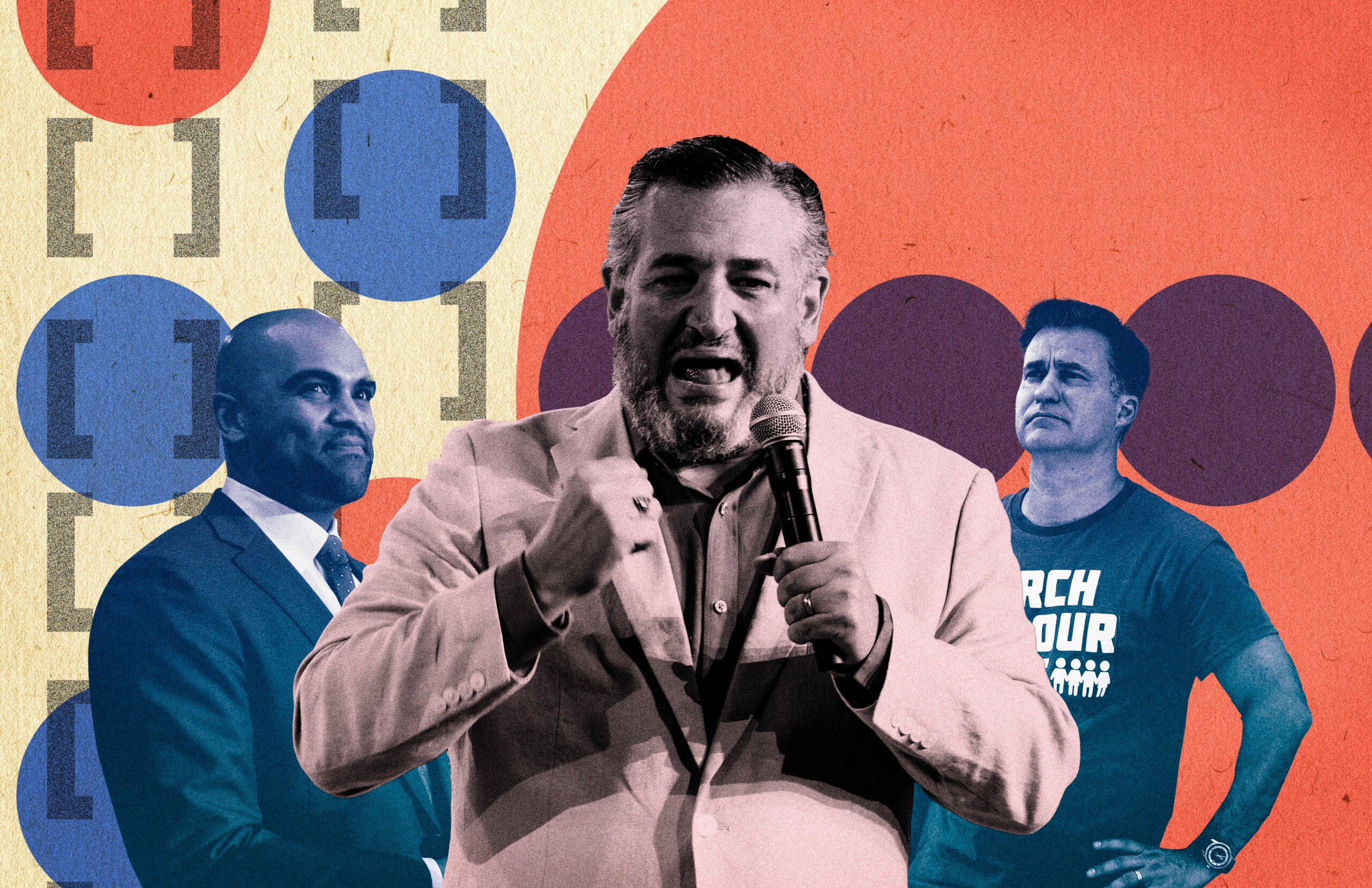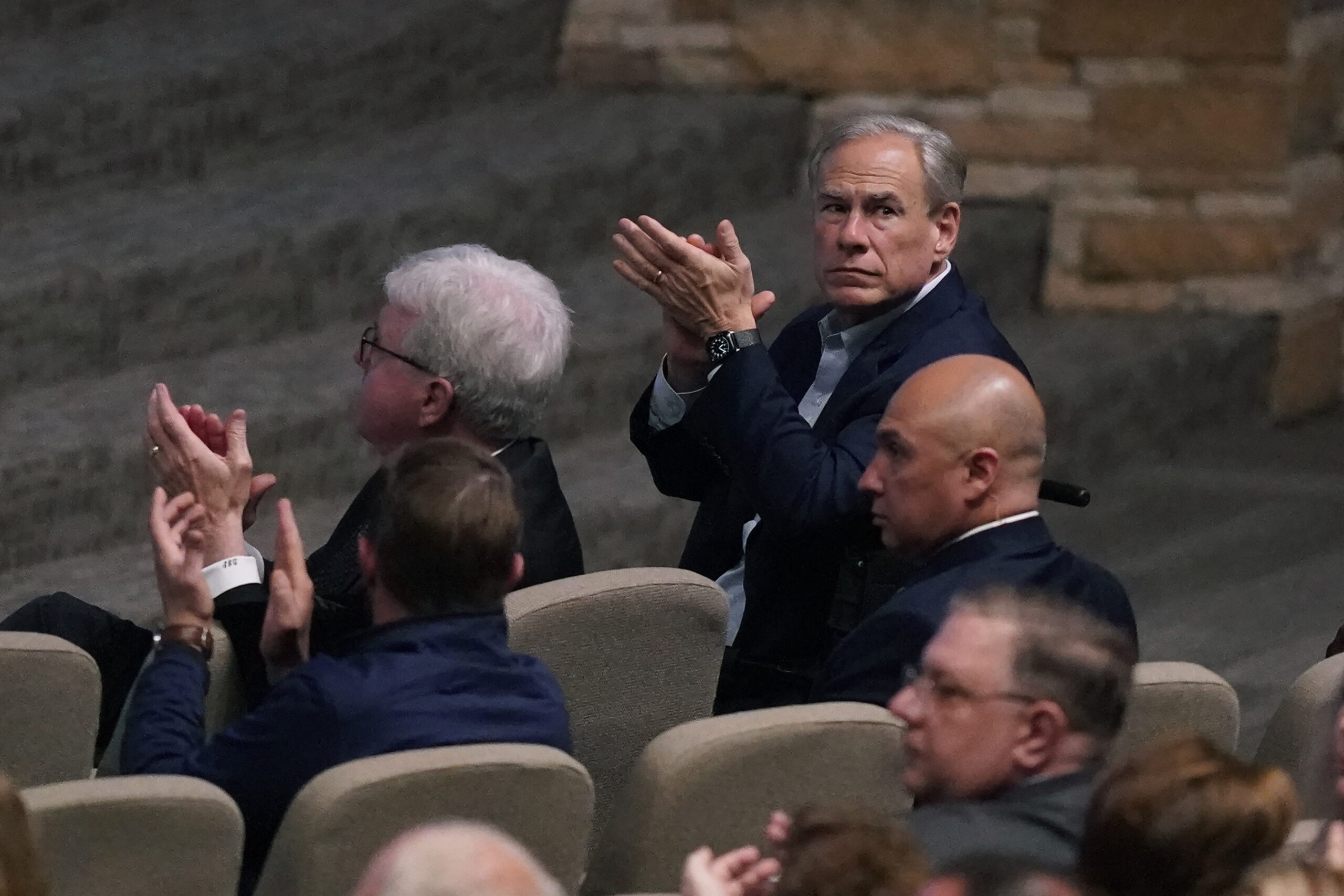
How (Not) to Mourn a Mass Shooting
Two local churches in Allen offered contrasting visions of how the community can heal in the wake of mass murder.
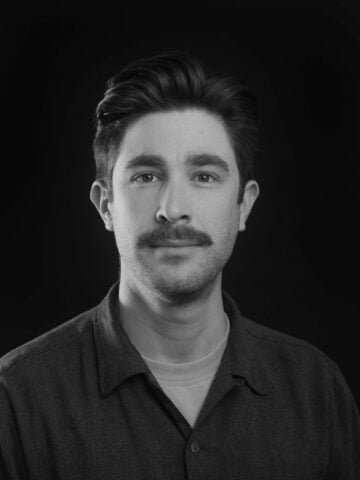
On May 6, a man wearing tactical gear left his vehicle in the parking lot of a mall in Allen and began shooting innocent bystanders. His vest bore a shield-shaped patch with the letters RWDS—an acronym for “Right Wing Death Squad,” a common signifier among far-right ideologues. The gunman used multiple weapons, including an AR-15, to kill eight people and wound at least seven others. Although the motive for the killings is still unknown, authorities confirmed he was a neo-Nazi.
At a press conference the day of the shooting, state Representative Jeff Leach—elected to represent most of Allen, who authored a permitless carry bill allowing citizens to have a handgun in public without a license—announced that a vigil would be held the next day at Cottonwood Creek Church. I attended that vigil as well as a much smaller interfaith one at nearby Christ Throne Church. The two offered competing visions on how the Allen community is dealing with and talking about the mass shooting.
When I checked in as a member of the media at Cottonwood’s sprawling campus, a staff member handed me a piece of paper that said we were not allowed to interview or take photos inside the building, citing attendee privacy. But with reporters at a safe distance, Governor Greg Abbott nevertheless managed a photo opportunity, which his staff promptly posted to his social media accounts.
“Jesus, just please take the wheel. … I think prayer is what we are going to need going forward.”
Not a seat was empty in the massive Cottonwood Creek auditorium. Executive Pastor Scott Sanford—a former Republican state representative whose term ended in January—began by giving a brief overview. Then he named the more than 30—mostly Republican—elected officials in attendance.
“We will hear from Ken Fulk, mayor of Allen, as well as the Mayor-Elect Baine Brooks,” Sanford said. “We also have [other] esteemed guests with us this evening. First and foremost, we have Governor Greg Abbott. Welcome Governor, glad that you’re here.”
“I just want you elected officials to know that we’re praying for you,” Sanford continued. “We know events like yesterday weigh on you. You are in our prayers. Now, may we give a round of applause for them.”
The standing-room-only crowd erupted in applause, which echoed off the vaulted ceiling.
But not everyone was clapping. Two people stood up. “What about the gun laws?” one shouted. Both were escorted off the premises by police.
Guided prayer and worship songs were interspersed between speeches from elected officials and Cottonwood faith leaders. After a brief prayer for the victims, the mayor of Allen, Ken Fulk, and the mayor-elect, Baine Brooks, addressed the crowd.
“We are praying for you, and we share your grief,” Fulk said. “Our hearts were broken yesterday, and we are here to offer you our full support.”
“Jesus, just please take the wheel,” Brooks added. “I think prayer is what we are going to need going forward.”
Outside the Cottonwood building, however, protesters demanded more than “thoughts and prayers.” At the driveway entrance to the church parking lot, a group held signs demanding action. “My kids are worth more than your guns,” one read. “Well-regulated militia murders 8 people in Allen for your thoughts and prayers,” read another.
After the vigil, a small group of protesters wearing orange shirts stood outside the exit holding paper signs that read “Enough is enough.” After a man ripped one of their signs, security and Allen police told the protesters to leave the property or be arrested for trespassing.
No such protests accompanied the interfaith vigil at Christ Throne Church, which drew a fraction of the audience at Cottonwood. A little under two dozen people gathered in the humble church. I was the only member of the media there. The organizers did not prevent me from taking photos or conducting interviews.
The rhetoric at Christ Throne was very different from that at Cottonwood.
“Our world needs to change now,” Reverend Irvin Lynn Barrett said. “Not down the road. Now, so that this epidemic of mass killings does not continue.”
The small, yellow building where Barrett spoke was unassuming. When I first arrived, I wasn’t sure I was at the right place. Inside, a diverse group of attendees, including members of the local Jewish and Hindu communities, listened as Barrett led the vigil from a small red-carpeted stage. The mood was somber. No worship songs or cues for applause.
“We can’t expect or wait for somebody else to do it,” Barrett said. “We must start and begin doing it ourselves.”
At the conclusion of his sermon, Barrett asked each attendee to introduce themself and say why they were there. State Representative Mihaela Plesa, a Democrat who represents a portion of Allen, spoke about the need for reform.
“As the scripture says, faith without works is dead.”
“My heart goes out to all of you,” Plesa said. “I got back to the district as soon as I could. We will be on the floor of the House tomorrow, and I will hold my colleagues accountable. It’s not just that we can pass gun control; it’s that we must.”
Also in attendance at the interfaith vigil was Collin County NAACP President June Jenkins, who echoed the calls for action: “As the scripture says, faith without works is dead.”
The next day, Leach—who had originally announced the vigil at Cottonwood on live television—said in a press conference that such mass killings are “happening way too much.” But he conceded that he doesn’t intend to do much about it.
“I don’t have the answers,” Leach said. “I don’t have a bill in front of you. I’m not sure there are any bills in front of us this morning, this session, that could have prevented this.”
That afternoon, a bill that would raise the legal age to purchase a semi-automatic rifle to 21 advanced out of a Texas House committee by a vote of 8-5. It faces an uphill climb. Shortly after the committee voted on the bill, gun advocacy group Texas Gun Rights cast it as a “kneejerk” response that would not have prevented the Allen mass shooting, which was perpetrated by a 33-year-old man. Meanwhile, Abbott told Fox News there would be “no gun control” after the shooting.
Consider that the executive pastor of Cottonwood, Sanford, sponsored a bill in the 2021 legislative session that allows school marshalls to have more ready access to their guns. Or that, in 2022, the church hosted the True Texas Project for a screening of 2000 Mules, a debunked conspiracy film about the 2020 election. This was just a few months after the Southern Poverty Law Center designated the True Texas Project an anti-government hate group.
“Cottonwood Creek Church does not endorse or oppose any candidate for political office,” reads the last paragraph of the document members of the media received at Cottonwood. “Instead, any information, videos, appearances, posts, etc. related to any political topic are provided for informational purposes only and represent the personal views or opinions of the individual expressing them, but do not necessarily represent the views or opinions of Cottonwood Creek Church.”

